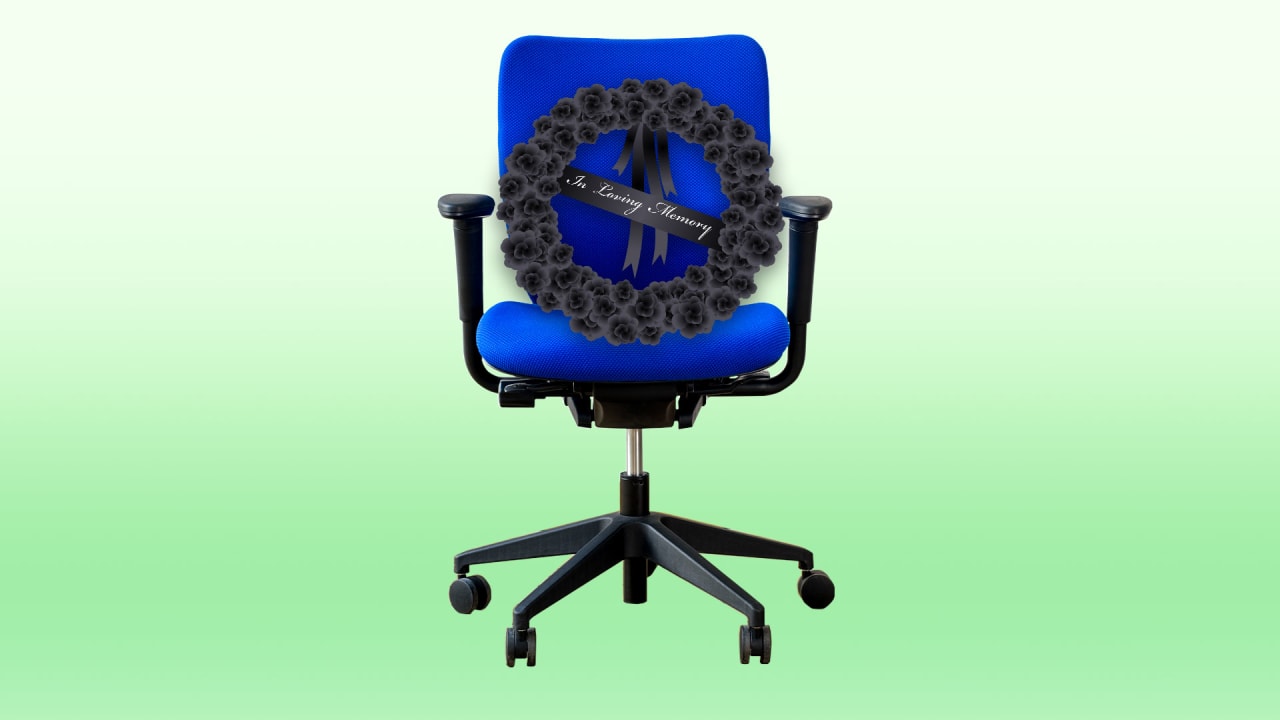
My LinkedIn feed has been filled with layoff posts lately. They’re often a series of uncomfortable responses from well-intentioned friends. I’ve seen people say everything from “Good luck!” (a phrase defined as being “used to say that one thinks what someone is trying to do is difficult or impossible”) to downright inhumane comments like: “Can I offer some constructive criticism?”
Losing a job is a form of grief, a complicated set of emotions a person feels when something precious is suddenly gone. It arises in response to death, but it also occurs from the end of a relationship, a traumatic experience, or when radical change occurs outside our control. Many people grieve the loss of a job because of the uncertainty it creates, the feelings of instability, and the diminishment of one’s identity or sense of competence.
When you’re grieving, you long for connection and support. And yet, as a culture we tend to deny suffering because it feels uncomfortable, shameful, and an anathema to the norms of beauty, success, and happiness that we’re supposed to display. This is especially true in business (“challenges are opportunities!”) and on social media (“look at my perfect life!”). This all makes conversations with people who have been laid off feel really hard to navigate.
I get it—it’s hard to know what to say. As a person who regularly helps people dealing with grief, here is how I recommend responding to people who recently lost their jobs.
Reach out, don’t hide. Grieving people are often uncomfortably vulnerable, but a person who has been laid off needs human connection and they need to be heard. Say something as simple as, “Hey, I saw your post about getting laid off and just wanted to see how you are holding up?”
Don’t try to fix anything. One of the hardest parts of grief is avoiding the problem-solving mentality. The emotions of grief are a response to experiences of suffering. There’s nothing to fix. You don’t need a slide deck or a management framework to offer kindness, encouragement, and friendship. Start with a simple ,”That sucks and I care about you.”
Avoid platitudes. “You’ll land on your feet.” “Everything happens for a reason.” “What doesn’t kill you makes you stronger.” You may believe these statements, but they’re just not comforting. Opt for compassion over maxims. “I imagine this is really hard.” “I’m here to listen.” If you don’t know the person but want to say something in the comments section of their post, reach out with encouragement. “I’m sorry for what you are experiencing. Your post was meaningful to me and I’m grateful that you shared it.”
If you offer to help, be specific. Swap out the annoying and useless, “Let me know how I can help.” Try: “I’m not sure where you are in your process, but when you’re ready I have some ideas that might be useful.” Or, ”I’d be happy to make some introductions for you.” Or, “I’d love to brainstorm with you if you need a sounding board.”
Don’t diminish their experience. In the initial phases of shock and sadness after a layoff, it can be difficult to take in silver linings. Avoid any statement that begins with “at least,” “luckily,” or “it could have been worse.” Many people eventually get to a place of ascribing meaning to experiences of hardship, but that is their meaning making process, not yours. Finding the meaning in loss takes a long time and it requires us first to turn and face the difficulty before we can find the benefits.
Express solidarity in a concise way. It’s natural to want to share when you’ve been through something similar. Saying, “I also went through a layoff. It was so difficult,” sets a baseline of shared experience. Be mindful of what happens when you follow up that statement with all the gory details of your layoff. While solidarity can be comforting because it conveys that someone is not alone in what they’re going through, it also shifts focus from the griever. If you feel like telling your story, you should. Just not in response to someone else’s grief.
Don’t worry if you don’t hear back. One of my favorite lines for grievers is, “No need to respond.” Grief can be overwhelming. Show your care but don’t demand a response on your terms.
Check in down the road. Everyone has something to say in the beginning. True support for someone grieving the loss of a job is following up months later. “Hey, I’m thinking about you and wondered how the job search is going.”
Layoffs and the grief that accompany them are messy, difficult, and uncomfortable to witness. And they’re even more so to those going through them. Learning how to support people through hardship can be incredibly worthwhile as it pushes us to pause, listen more carefully, and step outside comfortable platitudes to a place of human connection. Don’t let concern for saying the wrong thing keep you from reaching out. It will go a long way with the person who has been laid off, and you’ll probably be glad you did.
Meredith Parfet is the CEO of the Ravenyard Group, a crisis communications firm that fuses strategic and technical expertise with a focus on well-being.
